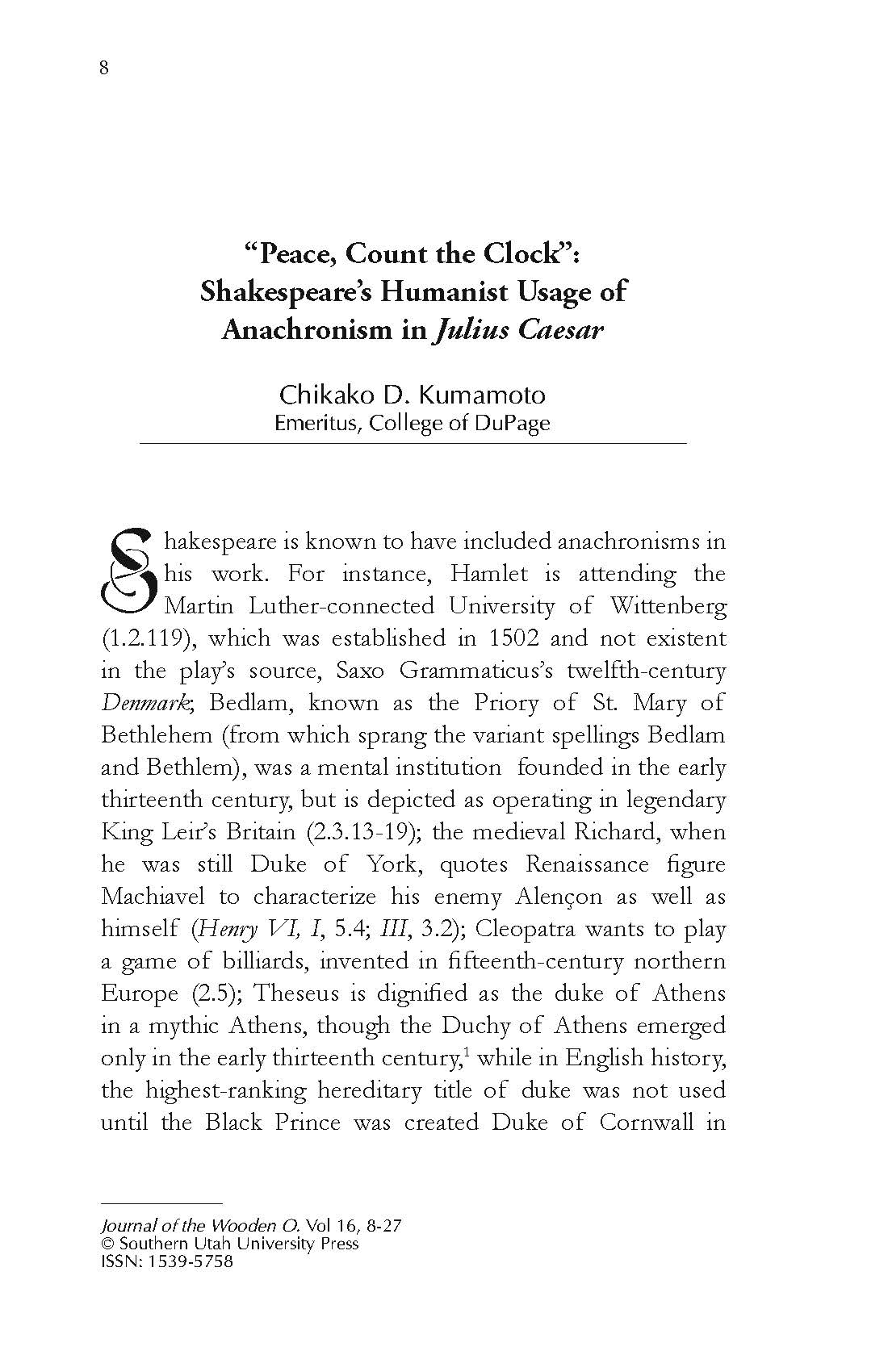“Peace, Count the Clock”: Shakespeare’s Humanist Usage of Anachronism in Julius Caesar
Main Article Content
Abstract
Shakespeare is known to have included anachronisms in his work. For instance, Hamlet is attending the Martin Luther-connected University of Wittenberg (1.2.119), which was established in 1502 and not existent in the play’s source, Saxo Grammaticus’s twelfth-century Denmark; Bedlam, known as the Priory of St. Mary of Bethlehem (from which sprang the variant spellings Bedlam and Bethlem), was a mental institution founded in the early thirteenth century, but is depicted as operating in legendary King Leir’s Britain (2.3.13-19); the medieval Richard, when he was still Duke of York, quotes Renaissance figure Machiavel to characterize his enemy Alençon as well as himself (Henry VI, I, 5.4; III, 3.2); Cleopatra wants to play a game of billiards, invented in fifteenth-century northern
Europe (2.5); Theseus is dignified as the duke of Athens in a mythic Athens, though the Duchy of Athens emerged only in the early thirteenth century,1 while in English history, the highest-ranking hereditary title of duke was not used until the Black Prince was created Duke of Cornwall in 1337;2 Puck’s hearing a gun report is also incongruous since the gun was a ninth-century invention (3.2). The most often quoted anachronism is the striking clock, unknown in 44 B.C., the year of Caesar’s assassination (2.1.206).3
